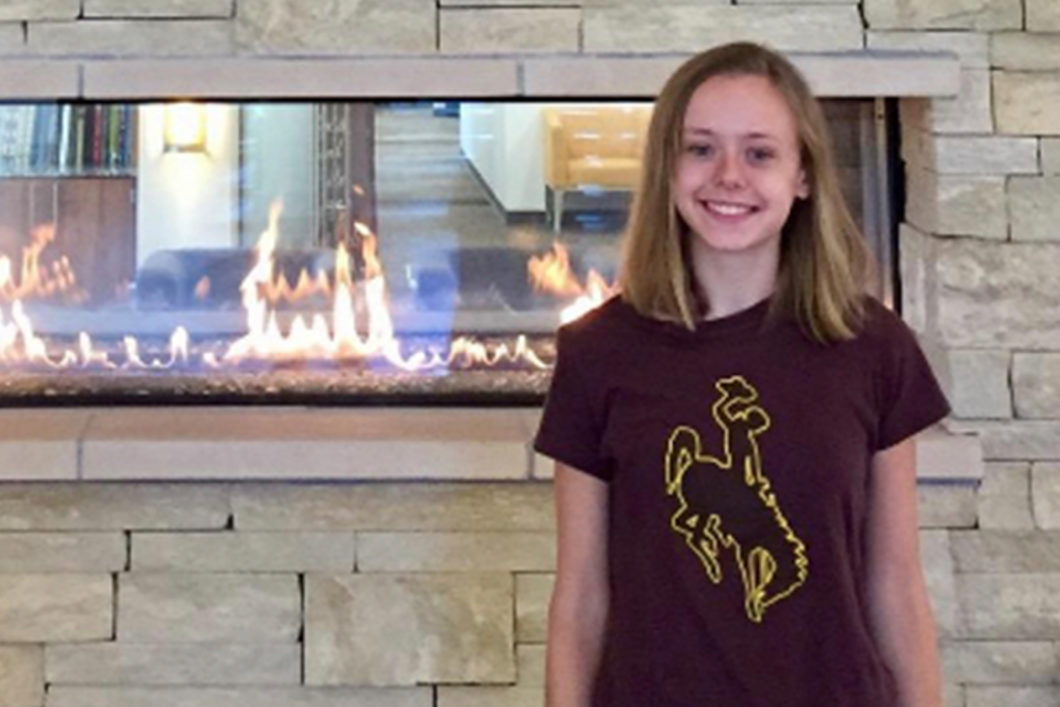Inspired by her own experience with hearing loss, Carrie is pursuing her dream of becoming a speech-language pathologist. She wants to be a voice for others who face challenges with their hearing and are told they can’t do something because of their differences.
Fast Facts About Carrie
- Current undergrad CSD student at the University of Wyoming
- Moved to Wyoming from Rochester, New York
- Has worked with the aging adult population in a retirement community for 3 years
- National NSSLHA member for 1 year
- Obsessed with Dr. Pepper (no really, she sometimes drinks 2 each day!)
What’s the Biggest Challenge You’ve Faced as a Student with Hearing Loss?
Although born with full hearing, when I was five years old, I was diagnosed with sensorineural hearing loss in both ears—cause unknown—and my range of hearing is mild to moderately severe. Growing up, I used to be really insecure about wearing hearing aids. So many kids didn’t know what they were, so I’d get asked a lot of questions about them. There were times I wouldn’t wear them at all just to avoid it, and I’d rely on lip-reading or sitting in front of the class instead.
My hearing loss forced me into having a different perspective on life. I always felt I had to prove my worth academically. I used to think having a hearing loss made me less intelligent than other kids. I felt that by default, my teachers automatically looked down on me. In reality, I only had to prove to myself that I could do anything I wanted.
To create a sense of community, I’d participate in meet-ups for deaf and hard of hearing students. It really helped me feel a connection. Other students would teach me bits of ASL, and it was the one time I didn’t feel insecure about my hearing loss. Looking back, it certainly influenced my decision to become a speech-language pathologist. It made me realize how much I can relate to this population.
But when I was in high school, I was told that I wouldn’t be able to work as an SLP due to my hearing loss. I was devastated. This was the first time someone told me directly that I couldn’t do something because of it.
I contacted the head of the CSD program at the University of Wyoming because I was really concerned about my job prospects. He was so understanding and assured me that many students with hearing loss like me go on to become skilled SLPs and audiologists. His affirmation gave me the confidence to continue pursuing my dream.
What Advice Do You Have for Other Students Going Through Similar Challenges?
Speak up and never let others dictate what you can or cannot do. Only you can decide what you’re capable of.
Also, find others in the field who inspire you. There are so many people who’ve accomplished amazing work despite their physical limitations. Dr. Allyson L. Sisler-Dinwiddie, a deaf audiologist who pursued a PhD (even as her hearing loss worsened) is one of my personal inspirations. She’s inspired me through her unbeatable determination and by not letting her changing condition stop her from achieving her dreams.
What Are Your Goals as an #SLP2B?
As an SLP, I look forward to advocating for health insurance reform, particularly when it comes to the aging population. When my grandmother needed hearing aids, navigating the Medicare system was challenging. And while telepractice is a wonderful tool, it can increase service inaccessibility issues to this population. All of these challenges make it difficult and costly for individuals to get the care they need, as well as disproportionately limit access to hearing aids. This takes a toll on the individual and their caretakers. I want to be a voice for this underserved and often overlooked population.
I’d also like to work as a traveling SLP. By seeing my clients’ homes and integrating with their families, I’ll gain additional information that’ll help me provide services more tailored to their specific needs. It would be another way to provide specialized care to the aging population.
How Has Being a National NSSLHA Member Helped You Reach Your Goals?
I love the community I’ve built through National NSSLHA! I’ve been able to network and forge connections with other students and professionals across the country who are also interested in working with the aging population. I connect with one SLP who specializes in treating individuals who have dementia within the older adult population. Her advice to me was to work with all populations, even if my interest is in adults. It’s important to be able to adapt to any situation or setting as an SLP.
Getting involved in National NSSLHA has broadened my horizons beyond my University of Wyoming NSSLHA chapter and program. Our CSD programs can be rigorous, so it really helps to know I’m not alone! I’ve been inspired by other National NSSLHA members’ stories, like me, who are working to achieve their dreams of becoming an audiologist or SLP.

